Delhi School of Economics is one of Top Institute in New Delhi, Delhi. Its Affiliated with University of Delhi. Get Courses, Facilities, Placements, Recognitions & Accreditations details.
Bhai Parmanand Institute of Business Studies Latest Updates
Bhai Parmanand Institute of Business Studies, Old Delhi is one of the top-ranked university in Delhi, with an excellent academic curriculum, placements, facilities, and esteemed faculty members. Bhai Parmanand Institute of Business Studies is admission open 2024 accepting applications for all UG and PG courses for the academic session 2024-25. Bhai Parmanand Institute of Business Studies Old Delhi provides Scholarships for student's academic excellence and extracurricular achievements, also offers Merit-Based Scholarships for candidates based on merit scores in National & State Level competative exams as well as College Level Test. Interested candidates can apply to their preferred course by visiting the official website.
Here are some other Updates are as follows:
- The Bhai Parmanand Institute of Business Studies has recently conducted a placements drive for the 2024 passing out batch students and provides handsome salary packages.
- Bhai Parmanand Institute of Business Studies is also accepting applications from International Candidates for UG, PG, Diploma, and Certificate courses.
- Bhai Parmanand Institute of Business Studies Old Delhi offered upto 100% Scholarships to eligible candidates based on their academic excellence and extracurricular achievements.
- Bhai Parmanand Institute of Business Studies, Old Delhi has world-class infrastructure facilities for students and staff.
Meghnad Desai Academy of Economics Latest Updates
Meghnad Desai Academy of Economics, Mumbai is one of the top-ranked university in Maharashtra, with an excellent academic curriculum, placements, facilities, and esteemed faculty members. Meghnad Desai Academy of Economics is admission open 2024 accepting applications for all UG and PG courses for the academic session 2024-25. Meghnad Desai Academy of Economics Mumbai provides Scholarships for student's academic excellence and extracurricular achievements, also offers Merit-Based Scholarships for candidates based on merit scores in National & State Level competative exams as well as College Level Test. Interested candidates can apply to their preferred course by visiting the official website.
Here are some other Updates are as follows:
- The Meghnad Desai Academy of Economics has recently conducted a placements drive for the 2024 passing out batch students and provides handsome salary packages.
- Meghnad Desai Academy of Economics is also accepting applications from International Candidates for UG, PG, Diploma, and Certificate courses.
- Meghnad Desai Academy of Economics Mumbai offered upto 100% Scholarships to eligible candidates based on their academic excellence and extracurricular achievements.
- Meghnad Desai Academy of Economics, Mumbai has world-class infrastructure facilities for students and staff.
About Delhi School of Economics (DSE), University of Delhi
The Delhi School of Economics (DSE), a renowned institution affiliated with the University of Delhi, has been a beacon of academic excellence since its establishment in 1949. Located in the vibrant North Campus of the university, specifically in Maurice Nagar, DSE, Delhi offers a diverse range of postgraduate and doctoral programs in disciplines such as economics, sociology, geography, and commerce. With its esteemed faculty and state-of-the-art facilities, DSE attracts students from across the country who seek the unparalleled educational opportunities it provides.
The Delhi School of Economics (DSE) Delhi has earned a well-deserved reputation as a premier institution for higher learning. With its rich history and strong affiliation with the University of Delhi, DSE stands as a symbol of academic excellence and intellectual prowess. Students at DSE, Delhi benefit from the expertise of the esteemed faculty members who have made significant contributions to their respective fields. As a result, DSE has produced notable alumni who have excelled in various domains, including economics, sociology, and public administration.
Accreditation and Ranking of Delhi School of Economics (DSE), Delhi
The Delhi School of Economics (DSE) is a constituent department under the University of Delhi (DU) and is also approved by the University Grants Commission (UGC). Being a part of DU, DSE benefits from the reputation and academic excellence of one of India's premier universities. The UGC approval further ensures that the programs and courses offered by DSE meet the required standards of quality and credibility set by the regulatory body. This affiliation with DU and recognition by the UGC adds to the credibility and value of the education and degrees obtained from the Delhi School of Economics.
The Delhi School of Economics (DSE), Delhi has been ranked 44 for MBA/PGDM by Business Today in their 2020 rankings. This ranking signifies the strong reputation and quality of the MBA/PGDM program offered by DSE. It reflects the school's commitment to delivering a valuable and competitive business education to its students. The Delhi School of Economics, Delhi ranking by Business Today serves as a recognition of DSE's academic excellence and its ability to prepare students for successful careers in the business field. Prospective students can consider this ranking as an important factor when evaluating DSE's MBA/PGDM program.
Courses offered by the Delhi School of Economics (DSE), Delhi
The Delhi School of Economics offers a diverse range of courses at both the undergraduate and postgraduate levels.
At the Delhi School of Economics, Delhi undergraduate program, students can pursue a Bachelor of Arts (BA) degree, which provides a broad understanding of social sciences and humanities. They also have the option to specialize in specific areas through the Bachelor of Arts (Honours) (BA Hons.) program. The BA Hons. program offers in-depth knowledge and critical analysis in disciplines such as economics, sociology, and geography.
For studying postgraduate, in Delhi School of Economics offers a highly regarded Master of Arts in Economics (MA Economics) program. This program equips students with advanced theoretical and analytical skills in economics, preparing them for careers in academia, research, and policy-making. Additionally, the school provides opportunities for doctoral research, allowing students to pursue a Ph.D. in various fields related to economics and social sciences.
In addition to the MA Economics and Ph.D. programs, the Delhi School of Economics also offers a Master of Philosophy (MPhil) program. The MPhil program provides students with advanced research training and allows them to delve deeper into specific areas of interest within their chosen field of study.
Furthermore, the Delhi School of Economics offers an MBA (Master of Business Administration) program with specializations in International Business (IB) and Human Resource Development (HRD). These programs cater to students interested in the business and management aspects of economics and provide them with the necessary skills to excel in global business environments.
Meghnad Desai Academy of Economics, Mumbai campus life
Campus life at Meghnad Desai Academy of Economics, Mumbai is just phenomenal. The Meghnad Desai Academy of Economics, Mumbai, Maharashtra and its Campus life provides lots of extracurricular activities like talent in dance, singing, art, literature, anchoring, event management, modelling and drama. Meghnad Desai Academy of Economics Mumbai campus life and environment is lively and friendly. The premises have sufficient facilities- medical help, food, and departmental store, etc. to fulfil every need of the students.
At Meghnad Desai Academy of Economics campus you get chance to groom your personality, learn something new. Also, All the festivals are celebrated with extreme enthusiasm at Meghnad Desai Academy of Economics campus Mumbai so that students feel like home. Sports meet and annual college fests are huge stages for students to showcase their talent. Once you will graduate you will definitely miss the Meghnad Desai Academy of Economics, Mumbai campus life.
Faculty members in Delhi School of Economics (DSE), Delhi
The faculty at Delhi School of Economics (DSE), Delhi includes professors, associate professors, and assistant professors. They specialize in various fields such as Law & Regulatory Economics, Development Economics, Applied Econometrics, Applied Micro, Game Theory, Agricultural Economics, Labour Economics, Macroeconomics, Growth and Development, Health Economics, Political Economics, and more. The faculty members contribute to teaching, research, and the overall academic environment of the institution.
Facilities and Infrastructure in Delhi School of Economics (DSE), Delhi
The Delhi School of Economics (DSE) has excellent infrastructure and resources for its faculty and students. The highlight is the Ratan Tata Library, which is renowned for housing one of the finest collections of economics books in the country. With over 180,000 books and subscriptions to nearly 125,000 bound periodicals, it also collects publications from governments and international agencies. The department's computer labs are well-equipped with modern computers, printers, and high-speed internet access. Advanced software like STATA, GAUSS, EVIEWS, and SCIENTIFIC WORKPLACE is available for academic use. Faculty and students have access to electronic resources and databases such as JSTOR and ECONLIT. The campus features two spacious lecture theatres and multiple classrooms equipped with state-of-the-art audio-visual equipment. Additionally, a dedicated professional support staff is always available to assist and provide necessary guidance.
Hostel Accommodation in DSE:
Delhi School of Economics provides hostel accommodation for both male and female students. For female students, there are about 26 seats available in the Ambedkar Ganguli Students' House for Women. Additionally, women students can also apply for accommodation at Meghdoot Hostel and the Post-Graduate Hostel for Women. Male students have several hostel options, including V.K.R.V. Rao Hostel, Gwyer Hall, Jubilee Hall, Mansarover Hostel, Post-graduate Men's Hostel, and International Students House.
Library in DSE:
The Ratan Tata Library at the Delhi School of Economics is renowned for its extensive collection in economics. It houses over 1,80,000 books, subscribes to nearly 1,25,000 bound periodicals, and contains numerous publications from governments and international agencies. Students have access to a wealth of academic resources for their research and studies.
Computer Lab in DSE:
Delhi School of Economics is equipped with well-equipped computer labs. Students have access to advanced software such as STATA, GAUSS, EVIEWS, and SCIENTIFIC WORKPLACE. They can also avail themselves of electronic resources like JSTOR, ECONLIT, and databases like NSS and census. These resources enhance students' learning and facilitate their research activities.
Admission to Delhi School of Economics (DSE), Delhi
Delhi School of Economics (DSE), offers admission to aspiring students who are interested in pursuing their education in the field of economics. DSE's admission process is highly competitive, attracting students from various backgrounds who are eager to join this prestigious institution. Known for its academic excellence, DSE provides a wide range of undergraduate and postgraduate programs to cater to the diverse interests of students. With a strong emphasis on research, industry collaborations, and practical learning, DSE ensures that students receive a comprehensive education that prepares them for successful careers in economics and related fields. The faculty at DSE is renowned for their expertise and guidance, providing students with valuable insights and knowledge. By fostering an environment of intellectual growth and critical thinking, DSE equips its students with the necessary skills to excel in their chosen fields. Admission to DSE, Delhi is a stepping stone towards a rewarding academic journey that opens doors to numerous opportunities and a bright future.
Delhi School of Economics (DSE) offers two undergraduate programs for a duration of three years: B.A (Hons.) in Economics and B.A Program. The DSE, Delhi eligibility criteria for these programs are as follows:
B.A (Hons.) in Economics: Candidates must have a minimum of 60% marks in aggregate at the 10+2 level from a recognized board.
B.A Program: Candidates must have a minimum of 40% marks in aggregate at the 10+2 level from a recognized board.
1. The selection process for undergraduate admissions at DSE involves the following:
2. CUET exam pattern and subject requirements are as follows:
CUET consists of three sections: Language, Domain-Specific Topics, and General Knowledge (required for B.A. Program only).
- Candidates must appear in at least one language out of the 33 languages provided.
- For the Domain-Specific Topics section, candidates must choose at least three subjects that they have studied in class 12th.
- Candidates can appear for CUET in a maximum of six subjects, including at least one language subject.
For B.A. (Hons.) in Economics, candidates must take a test in Mathematics as part of CUET. The score is calculated based on language, Mathematics, and two other subjects.
For B.A Program, candidates must appear in the entrance test in any one language from section one and in any three subjects from the other section. Merit is calculated based on the marks obtained in the same subject and language.
The Delhi School of Economics, under the Faculty of Commerce, offers an MBA degree with specializations in International Business (IB) and Human Resource and Organizational Development (HROD).
1. The eligibility criteria for the MBA program at DSE are as follows:
- Bachelor's Degree with a minimum of 50% marks in aggregate.
- Relaxation in eligibility for reserved category students as per university rules.
- A valid CAT score is mandatory.
2. The selection criteria for the MBA program at DSE, Delhi involve a three-layered process:
3. Final admission selection criteria, which include the following weightage:
• CAT Score: 60%
• Class Xth: 7.5%
• Class XIIth: 7.5%
• Group Discussion: 5%
• Personal Interview: 15%
• Extempore: 5%
Candidates are required to submit their CAT scores, and shortlisted candidates based on their CAT percentile will be called for Group Discussion, Extempore, and Personal Interviews as part of the selection process. The final admission decision is based on the overall performance in these parameters.
Delhi School of Economics (DSE) offers a 2-year MA program in Economics at the postgraduate level. The admission process for MA (Economics) in 2023 is as follows:
1. Eligibility: Candidates must have a BA (Hons) Economics degree from the University of Delhi (DU) with at least 60% marks in aggregate.
2. Selection: Admission is based on merit, considering the candidate's performance in the past qualifying exam.
Admission Test Mode:
1. Eligibility: Candidates must have a UG/PG degree from DU with at least 60% marks in aggregate or a first-division or equivalent CGPA.
2. Selection: Admission is based on both the entrance exam and the candidate's past qualifying exam.
3. Entrance Exam: The DSE, Delhi entrance exam evaluates candidates in microeconomic theory, macroeconomic theory, mathematical techniques, and probability, statistics & elementary econometrics. It contains objective-type questions with negative markings for wrong answers.
4. Minimum Qualifying Score: General category candidates need to score at least 40%, while OBC candidates require a minimum of 36%, and SC/ST candidates need a minimum of 20% in the entrance exam.
The selection of candidates for merit seats is based on their performance in the entrance exam. Separate merit lists are prepared for reserved and general categories. The admission is provisional and subject to verification of original certificates by the Admission Committee of the University.
Delhi School of Economics, DSE offers M.Phil and Ph.D. programs in Economics for the year 2023. The admission process for M.Phil/Ph.D. (Economics) is as follows:
1. Eligibility Criteria: Candidates must have a Master's degree in a relevant field with a minimum of 55% marks.
2. Entrance Exam: Admission to the M.Phil and Ph.D. programs is based on the departmental entrance exam. Shortlisted candidates are required to appear for both a written assessment and an oral assessment. These assessments evaluate the student's research aptitude, knowledge of economics, and synopsis of research.
3. Exemption for National Level Examination Qualified Candidates: Candidates who have cleared a national-level examination such as CSIR/UGC-NET (including JRF), DBT-JRF, ICMR-JRF, and DST-INSPIRE are exempted from the departmental entrance test. They may directly appear for an interview as part of the selection process.
The final selection is based on the performance in the entrance exam, written and oral assessments, and the interview (for candidates exempted from the entrance test).
Seat allocation Delhi School of Economics (DSE), Delhi
The Common Seat Allocation System (CSAS) is the admission process introduced by Delhi University for undergraduate (UG) courses in its affiliated colleges. The process consists of the following phases:
Phase 1: CSAS Application Form
• Candidates need to fill the CSAS application form on the centralized admission portal and pay a one-time non-refundable application fee.
• ECA and sports quota candidates have to pay an additional fee.
Phase 2: Selection of Courses and College Preferences
• This phase begins after the announcement of the CUET examination results.
• Eligible candidates must select the desired courses and indicate their preference for colleges on the central CSAS portal.
Phase 3: Seat Allocation and Final Admission
• Merit lists will be published based on CUET scores.
• Multiple rounds of seat allotment will take place.
• Candidates can check if they have been allotted a seat on the CSAS dashboard and must accept the seat within the given deadline for each round.
Seat allocation considers factors such as the combination of college and program chosen, the candidate's position on the merit list, category (SC/ST/OBC/EWS/UR), and seat availability in DSE, Delhi.
Once a seat is accepted, the university verifies the candidate's eligibility, and documents, and confirms admission upon receiving the fee payment.
Note: CSAS is specifically applicable to UG admissions in Delhi University's affiliated colleges.
Scholarship at Delhi School of Economics (DSE), Delhi
Delhi School of Economics offers several DSE scholarships to students based on merit. One prominent scholarship is the Dr. Manmohan Singh Fellowship, which provides a monthly stipend of Rs. 5000 and an annual book grant of Rs. 7500. Another scholarship available is the A.N. Ram scholarship, which awards Rs. 1200 per month. Additionally, there are two substantial scholarships established in memory of the late Professor Suresh Tendulkar, with specific amounts to be announced later.
To support financially disadvantaged students, the school provides the option to fully or partially waive annual charges/fees based on the assessment of a departmental committee. Needy students can apply for a waiver by submitting an application at the time of admission fee payment, specifically for the computer fee. The application should include a statement of circumstances and a certificate to prove the annual family income. This initiative aims to alleviate financial hardships and ensure equal opportunities for all students.
Placement at Delhi School of Economics (DSE), Delhi
Delhi School of Economics boasts a dedicated placement cell that diligently handles the recruitment process, ensuring students have excellent job opportunities. The Delhi School of Economics (DSE), placement cell actively invites reputed companies to the campus, where students are groomed and prepared for interviews. It focuses on enhancing students' soft skills through workshops, seminars, webinars, and other events. Mock interviews are conducted to boost their confidence. The cell strives to match students' skills with companies' requirements, resulting in job offers. DSE students not only have domestic but also international employment prospects. In terms of MBA/PGDM placements, the highest package recorded was 20 LPA, while the average package stood at 9 LPA. The industry average for MBA/PGDM placements indicates that DSE Delhi's highest package of 15 LPA and DSE's average package of 4.5 LPA.
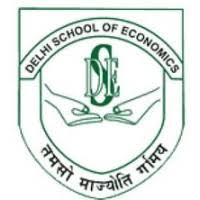
 Old Delhi, Delhi
Old Delhi, Delhi
 Collage
Collage
 1949
1949
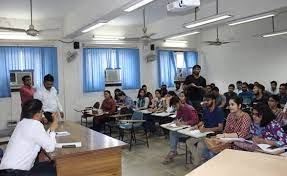
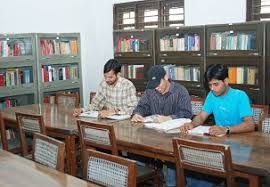
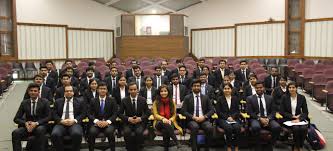
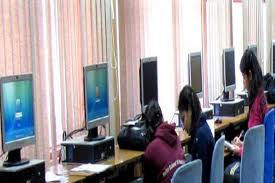
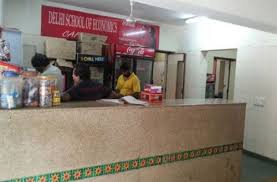
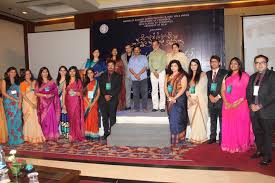
![Dev Bhoomi Uttarakhand University - [DBUU], Dehradun](https://cdn.universitykart.com//Content/upload/admin/lsfohlb4.1j1.png)



 back
back